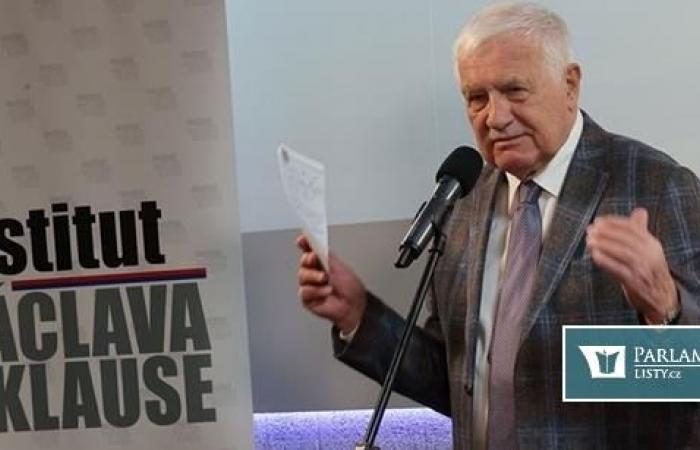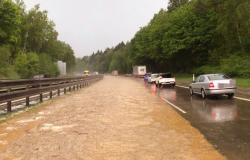Twenty years is not a long time, but the fight for the European Union and with the European Union is still the same. When we at IVK thought about how this anniversary – in our view, not to celebrate, but – to commemorate with dignity, we came up with several ideas.
On the eve of this anniversary, April 30, coincidentally the day of the burning of the witches, we will go to Blaník, as we did twenty years ago, to ask the Blaník knights to help us. We are older. At that time, we went to this Czech mountain (the observation tower is 638 meters above sea level) at the exact moment of entry, i.e. at midnight, and it was quite a difficult journey in the dark. Now we have become somewhat lazy with EU membership, so we will go in the early evening. However, the plea to the Blanica knights will be the same.
Before this anniversary, the IVK will publish my book of articles, speeches, essays on the subject of the European Union, which have the peculiarity that they were written in the period before our accession. (In two months, we will publish a book of texts written by me and colleagues at IVK after joining the EU.) These old articles have been published on the IVK website since March 1 this year.
The lessons to be learned from these old, forgotten texts – written 20-30 years ago – are immense. They look like they were written today. The problems of the European Union (the attempt at an artificial, voluntary unification of the continent – I emphasize voluntary, because Europe used to be involuntarily united by various “unifiers” – Napoleon, Hitler and Stalin) and problems with the European Union, which is slowly, in small steps, more and more giving in to individual member countries far more than those countries imagined when they voluntarily joined this grouping, they are eternal and essentially still the same.
As early as 1994, I was at the Europe conference in Prague and we said that “we are determined to join reasonable European integration, but this does not mean that we are supporters of absolute and unconditional European unification”. I said this knowing that “we are faced with a double task: to find our own identity and at the same time not to lose it immediately on our way to Europe”. These words are as true today as they were in May 1994.
I am still convinced today that “European states are the primary unit of integration and that European transnational institutions are a secondary unit”. And even then (Lidové noviny, September 1994) I was worried that “what is primary and what is secondary is beginning to be questioned.”
After the summit in Cannes (1995), I spoke publicly for the first time about the advantages and disadvantages of the common European currency. In Strasbourg, before the Parliamentary Assembly of the Council of Europe, I said that “we explain our ‘Europeanism’ as the duty to guard and protect our own identity, traditions and customs”. At the British Conservative Party conference in Blackpool, I said: “We are sometimes accused of forgetting all adjectives except the word free. But I believe that securing freedom is enough – individual happiness depends on each of us.” In Bonn in 1998, I spoke on the topic What will Europe be like after the introduction of the euro? I emphasize that the title had a question mark. The subsequent text had more question marks.
In the context of today’s Ukraine, it is useful to recall that I said then in Germany: “the insufficiently structured and specified goal called peace”, as the main guiding idea of the EU at the time, “almost blocks any serious debate about other goals or relations between them”. It seemed to me then that the word peace was misused. If only today’s warmongers would remember that. I told them that it was a weak goal and a defense of the meaning of European integration, but now I would really like it.
I did not agree with the attitude of conceiving the integration of Europe “through the glasses with the label Sarajevo”. We see Sarajevo and Kosovo, and therefore we must unionize”. Again, it is much the same with today’s strengthened unionization due to Ukraine. I wrote (in 1998) that Europe is defined by “the distinctive European figure – which Beamte is – that is, the figure of the European official”. I saw – in contrast to our processes after November 1989 – the danger in the new rise of the state: “The citizen-state equation is fundamentally changing. The challenge for Europe is whether this thinking will win or not in the 21st century.” (Bodensee Symposium in Bregenz in June 1999) Today we know that it won.
I wrote in the Frankfurter Allgemeine Zeitung (October 1999) that “the mentality of a unified fortress Europe closed to the world and separated from it by various barriers … would lead Europe to the periphery of the world”.
In Austria’s Wachau in June 2000, I warned that “Europe is at a crossroads” and that “all sorts of cosmopolitan globalizing tendencies, the erosion of the classic family model, the victory of an overly permissive value system leading to a loss of order” are at risk. Even then I was troubled by the “claims and activities of aggressive environmentalism”. In a speech in Freiburg, Germany (August 2000), I said that the project of European unification was “at best only a supplementary and at worst a replacement program” for the future of Europe.
When I see today’s behavior of Fiala and the Austrian (and many others), my statement in Deníce Bohemia in November 2000 seems highly relevant to me, that it is “the uncritical adoration of the European Union and the humiliation and sycophancy associated with it, which we have recently it has become such a fashion, highly counterproductive.” I note that this was at the moment when Zeman’s government was negotiating the terms of our entry into the EU.
On the 10th anniversary of the Maastricht Treaty (in December 2001 in MF Dnes), I probably used the term “Europeanism” for the first time. I considered Maastricht “a product of a new ideology, the ideology of Europeanism, which is a conglomerate (or amalgam) of a number of earlier partial illiberal attitudes”. In Maastricht, I saw the “legendary crossing of the Rubicon” that leads us to the “new” Europe.
Also worth mentioning is the discussion at the time about the so-called European constitution, which I always resolutely rejected. In MF Dnes in September 2003, I wrote: “For the avoidance of doubt, I am not against European integration. It is an advantage if there are the same traffic signs in Europe, the same customs duties for the import of goods from non-European countries, the same labeling of products and if there is a similar opinion in Europe on basic cultural and civilizational values or signs (on the death penalty, on organized crime, on people smuggling and goods across borders, to extremist movements, and the like). However, given the different economic levels, the achieved level of social development and the different cultural and political traditions of individual countries, it would be directly harmful if we introduced a single European ‘eintopf’.” I added that “let’s not shout that we are against Europe. We are against the European superstate, but we are very much in favor of a reasonably integrated, free and productive Europe.”
I still stand by this 21 year old statement.
Add PL to your favorite feeds on Google News. Thank you
Did you like this article?
You can support the independence of our editorial office with a monetary donation of any amount by bank transfer to the following account:
131-981500247/0100
The QR code contains payment information, determine the amount yourself.
Are you a politician? Post whatever you want without editing. Register HERE.
Are you a reader and want to communicate with your representatives? Register HERE.
author: Vaclav Klaus
Tags: todays warmongers remember Klaus years
-






